#kashmiri american poetry
Text

from Tonight by Agha Shahid Ali
#agha shahid ali#tonight#ghazal#kashmir#kashmiri american poetry#1990s#2000s#quotes#20th century poetry#queuetzalcoatlus#poetry
14 notes
·
View notes
Text
A poem by Agha Shahid Ali

Even the Rain
What will suffice for a true-love knot? Even the rain?
But he has bought grief’s lottery, bought even the rain.
“our glosses / wanting in this world” “Can you remember?”
Anyone! “when we thought / the poets taught” even the rain?
After we died—That was it!—God left us in the dark.
And as we forgot the dark, we forgot even the rain.
Drought was over. Where was I? Drinks were on the house.
For mixers, my love, you’d poured—what?—even the rain.
Of this pear-shaped orange’s perfumed twist, I will say:
Extract Vermouth from the bergamot, even the rain.
How did the Enemy love you—with earth? air? and fire?
He held just one thing back till he got even: the rain.
This is God’s site for a new house of executions?
You swear by the Bible, Despot, even the rain?
After the bones—those flowers—this was found in the urn:
The lost river, ashes from the ghat, even the rain.
What was I to prophesy if not the end of the world?
A salt pillar for the lonely lot, even the rain.
How the air raged, desperate, streaming the earth with
flames—
to help burn down my house, Fire sought even the rain.
He would raze the mountains, he would level the waves,
he would, to smooth his epic plot, even the rain.
New York belongs at daybreak to only me, just me—
to make this claim Memory’s brought even the rain.
They’ve found the knife that killed you, but whose prints
are these?
No one has such small hands, Shahid, not even the rain.
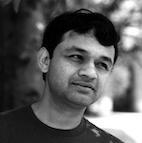
Agha Shahid Ali
(1949-2001)
Comments by the poet: At a personal level the rain brings so much memory back to me, especially of some very important love relationships I have had.
Image: After The Rain Brooklyn Bridge by Guillaume Gaudet.
3 notes
·
View notes
Text
Tonight
By Agha Shahid Ali
Pale hands I loved beside the Shalimar
—Laurence Hope
Where are you now? Who lies beneath your spell tonight?
Whom else from rapture’s road will you expel tonight?
Those “Fabrics of Cashmere—” “to make Me beautiful—”
“Trinket”—to gem—“Me to adorn—How tell”—tonight?
I beg for haven: Prisons, let open your gates—
A refugee from Belief seeks a cell tonight.
God’s vintage loneliness has turned to vinegar—
All the archangels—their wings frozen—fell tonight.
Lord, cried out the idols, Don’t let us be broken;
Only we can convert the infidel tonight.
Mughal ceilings, let your mirrored convexities
multiply me at once under your spell tonight.
He’s freed some fire from ice in pity for Heaven.
He’s left open—for God—the doors of Hell tonight.
In the heart’s veined temple, all statues have been smashed.
No priest in saffron’s left to toll its knell tonight.
God, limit these punishments, there’s still Judgment Day—
I’m a mere sinner, I’m no infidel tonight.
Executioners near the woman at the window.
Damn you, Elijah, I’ll bless Jezebel tonight.
The hunt is over, and I hear the Call to Prayer
fade into that of the wounded gazelle tonight.
My rivals for your love—you’ve invited them all?
This is mere insult, this is no farewell tonight.
And I, Shahid, only am escaped to tell thee—
God sobs in my arms. Call me Ishmael tonight.
https://www.poetryfoundation.org/poems/51652/tonight-56d22f898fcd7
Audio available
0 notes
Text
amongst examples of Palestinian-Kashmiri solidarity and connections, surely Edward Said’s deep and abiding love for Agha Shahid Ali’s poetry and work is one of the smallest ones. Not because Said didn’t do much for him; just that a drop of rain looks small next to an ocean. Maybe it’s not impressive in another way: Agha Shahid Ali produced one of the most beautiful volumes of poetry to be written in the geographical location ‘USA’, and definitely the finest in South Asian American letters. So everyone really loves him, when they read him.
Thinking and comparing both, reading both, there’s another way in which they’re similar: against all stereotypes, all claims by Zionists, Said does, in fact, take violence against Israelis seriously, never wanting to say that the loss of life is acceptable. Commendable, admirable: you can see what it did for him and his reputation, no quarter. Similarly Agha Shahid Ali, against all tantrums and claims by the bhakts, so seriously takes the situation of the Kashmiri Pandits, frequently addressing them—-more, frankly, than Hindu Indian writers have ever done (why bother? More useful as instruments). Maybe it’s childish to ask for ‘credit’ for examples of humanity—-it’s definitely worse than childish, on my part, to be disappointed when it’s not offered by people who daily commit to showing that if they had any, they don’t want it even for themselves.
12 notes
·
View notes
Text
FAMOUS POETS OF INDIA
India has been home to many renowned poets who have left an indelible mark on the world of literature. Here are some famous poets from India:
Rabindranath Tagore (1861-1941):
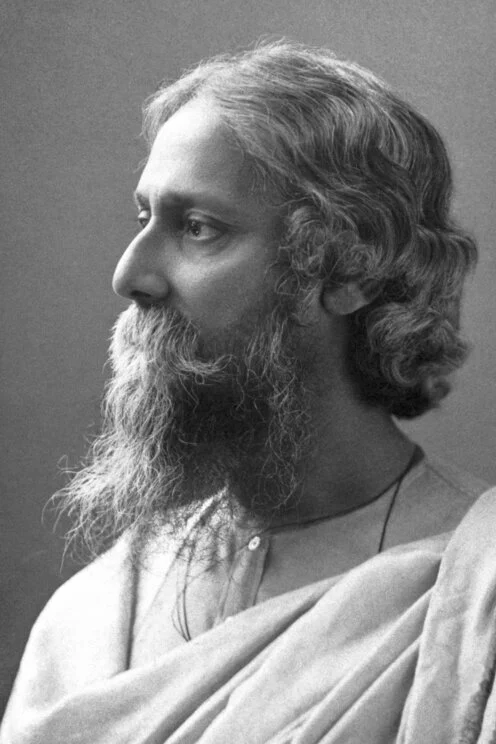
A polymath, Tagore was a poet, philosopher, musician, and playwright. He was the first non-European to be awarded the Nobel Prize in Literature in 1913 for his collection of poems, "Gitanjali" (Song Offerings). Tagore's work reflects a deep spiritual and philosophical insight.
Gulzar (Born 1934):
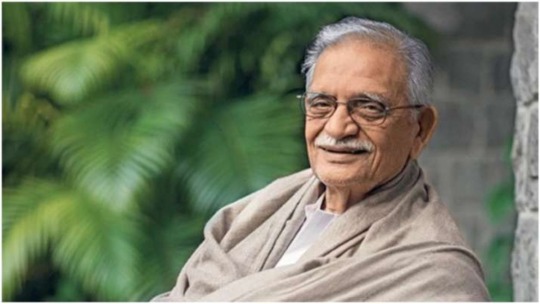
Sampooran Singh Kalra, known by his pen name Gulzar, is a versatile artist - a poet, lyricist, and film director. His poetry often explores themes of love, life, and human emotions. Gulzar has won numerous awards for his contributions to Indian cinema.
Mirza Ghalib (1797-1869):
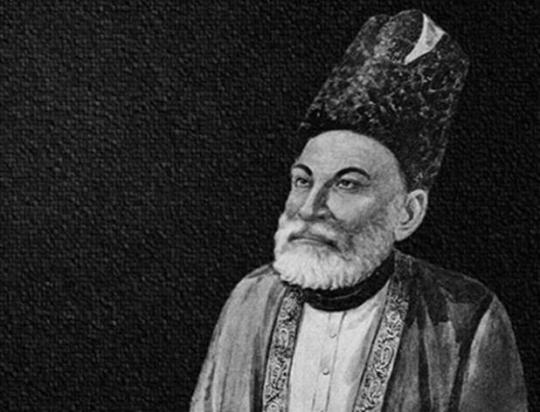
A prominent figure in Urdu and Persian literature, Ghalib is celebrated for his profound and often complex poetry. His ghazals and philosophical verses continue to be cherished, reflecting his keen observations and deep insights into human nature.
Sarojini Naidu (1879-1949):

Known as the "Nightingale of India," Naidu was not only a poet but also a politician and an activist. She played a significant role in India's struggle for independence. Her poetry is characterized by its lyrical beauty and patriotic themes.
Kamala Das (1934-2009):

An influential English-language poet, Kamala Das wrote with frankness about love, sexuality, and the complexities of human relationships. Her work often challenged societal norms, making her a prominent voice in contemporary Indian literature.
Faiz Ahmed Faiz (1911-1984):

A Pakistani poet who wrote in Urdu, Faiz Ahmed Faiz's poetry is known for its revolutionary themes and social commentary. He received the Lenin Peace Prize and is celebrated for his contributions to both literature and progressive thought.
Agha Shahid Ali (1949-2001):
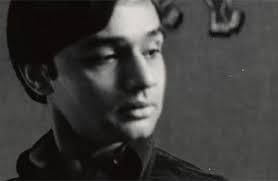
A distinguished Kashmiri-American poet, Agha Shahid Ali's work often revolves around themes of love, loss, and the cultural heritage of Kashmir. His poetry, deeply rooted in classical forms, has garnered international acclaim.
0 notes
Text
Let's Get Creative: 10 Fun Questions To Ask Chat Gpt
As technology continues to advance, so does the fascinating world of artificial intelligence. One of the most popular and intriguing AI creations is Chat Gpt - a language model designed to engage in conversations and provide responses based on its vast knowledge and training. However, amidst all the serious inquiries, why not lighten things up and delve into the realm of creativity with some fun questions for Chat Gpt? In this blog, we'll explore 10 Fun Questions To Ask Chat Gpt that will unveil the witty and inventive side of our virtual conversational companion.
1. If Chat Gpt could go on a vacation, where would it love to travel, and what adventures would it seek?
Let's whisk Chat Gpt away on a virtual vacation! Will it fancy a serene beach getaway, an exhilarating trek through the mountains, or a historical expedition to ancient ruins? Delving into Chat Gpt's dream vacation will undoubtedly reveal its wanderlust and the potential for some entertaining storytelling.
2. What would Chat Gpt do if it had a magical superpower for a day?
Prepare for some spellbinding responses as Chat Gpt unleashes its imagination. Would it choose to fly like a majestic bird, become invisible like a mischievous ghost, or possess the ability to speak to animals? The possibilities are endless, and the answers will surely spark the imagination of anyone engaged in the conversation. Unlock the Power of AI Conversation! Discover thought-provoking Questions To Ask Chat Gpt, the groundbreaking generative AI that's taking the tech world by storm.
3. Ask Chat Gpt about its favorite fictional character and why it relates to them.
With its vast knowledge of literature and popular culture, Chat Gpt is sure to have a favorite fictional character. Whether it's the courage of Harry Potter, the wisdom of Gandalf, or the wit of Sherlock Holmes, this question will reveal which traits resonate most with our AI friend.
4. What do you think Chat Gpt's favorite joke or riddle would be?
Humor is the spice of life, and even AI can appreciate a good laugh. Invite Chat Gpt to share a favorite joke or riddle, and let the virtual giggles commence. Who knows, you might discover a new favorite joke to share with your friends!
5. Challenge Chat Gpt to invent a new ice cream flavor. What wild combination would it come up with?
When it comes to creativity, the culinary realm is a treasure trove. Ask Chat Gpt to concoct a unique ice cream flavor by combining unexpected ingredients. Will it suggest "Lavender Lemonade Delight" or "Chili Chocolate Explosion"? You won't know until you ask!
6. If Chat Gpt could time travel, which historical event would it like to witness, and what would it do there?
Time travel might still be a dream for us, but in the realm of imagination, there are no bounds. Encourage Chat Gpt to take a journey through history and witness a momentous event. Whether it's witnessing the signing of the Declaration of Independence or attending the first moon landing, the responses will undoubtedly be intriguing.
7. Challenge Chat Gpt to compose a short poem about a favorite topic of your choice.
Creativity and poetry go hand in hand. Pick a theme, whether it's nature, love, or the vastness of the cosmos, and ask Chat Gpt to weave a poetic masterpiece. Prepare to be amazed by its linguistic prowess.
You can know more about :-
Kashmiri Food Recipes
Asian American Female Comedians
Indian Matchmaking Season 2 Review
8. Ask Chat Gpt to come up with an alternate ending to a famous movie or book.
We've all had moments where we wished a story ended differently. Give Chat Gpt the chance to rewrite the conclusion of a beloved movie or book. Who knows, Chat Gpt might just surprise you with a more satisfying finale!
9. What would Chat Gpt's dream invention be, and how would it change the world?
With its vast knowledge of technology and innovation, Chat Gpt can undoubtedly imagine groundbreaking inventions. From flying cars to time machines, let's explore the wildest ideas our AI friend can dream up. Embark on a Journey of Curiosity with Questions For Chat Gpt! Engage in enlightening conversations with this cutting-edge generative AI that's revolutionizing the tech industry.
10. In a world made of candy, what role would Chat Gpt play, and who would be its companions?
Let's venture into a sugary sweet world of imagination. In a land made entirely of candy, what role would Chat Gpt take on? Is it the ruler of the Chocolate Castle, the explorer of the Licorice Forest, or the guardian of the Gummy Bear Lake? And who would be its whimsical companions? The answers will be a delightful journey into a fantastical realm.
In conclusion, the world of artificial intelligence need not be limited to serious and informative questions. By embracing creativity and imagination, we unlock a world of fun and entertainment. So, the next time you converse with Chat Gpt, don't hesitate to let your creative side shine through with these 10 delightful questions!
0 notes
Quote
[...] She, she alone, was the universe
as she earned, like a galaxy, her right not to die,
Agha Shahid Ali, from Rooms are Never Finished, “Lenox Hill”
#Agha Shahid Ali#Kashmiri literature#American literature#lit#literature#poetry#poems#Rooms are Never Finished#Lenox Hill#i#on death
17 notes
·
View notes
Text

- from Oil // Fatimah Asghar
#poetry#poem#quote#writing#verse#free verse#fatimah asghar#english#language#youth#social commentary#ethnicity#identity#muslim poet#south asian poet#pakistani#kashmiri#muslim woman poet#american#01172022#id in the alt text
1 note
·
View note
Text
Dark Academia written by authors of colour
Hello, Will here! As autumn approaches and the days start getting colder, a lot of us in the DA will spend out time reading. Now, a problem with DA literature is how euro-centric it is. Most books are set either in England, France, Scotland or Germany. Maybe the USA (which I know isn't European).
As many of you know, I'm mestizo, and I have always liked uplifting POC voices in literary circles where we're often ignored. So I've compiled a couple of lists of Dark Academia books written by POC authors!
-Classics and Literary-
- The Souls Of Black Folk by W.E.B Du Bois (African-american)
- The Home and the World by Rabindranath Tagore (Bengali)
- Interior Chinatown by Charles Yu (Taiwanese-American)
- Not Without Laughter by Langston Hughes (Black American)
- The Pillow Book by Sei Shonagon (Japanese)
- Hawai'i's Story by Hawai'i's Queen by Queen Lili'uokalani (Native Hawai'ian)
- A Dark Night's Passing by Naoya Shiga (Japanese)
- The People Of the Sioux by Luther Standing Bear (Lakota {Native American})
- The President by Miguel Angel Asturias (Guatemalan)
(I strongly suggest checking out this list to find more amazing suggestions of POC classics)
-Poetry-
- Finna by Nate Marshall (Black American)
- If They Come for Us by Fatimah Asghar (Pakistani-Kashmiri-American)
- Night Sky with Exit Wounds by Ocean Vuong (Vietnamese)
- Holy Wild by Gwen Benaway (Anishinaabe)
- Citizen Illegal by José Olivarez (Mexican-American)
- In The Presence Of Absence by Mahmoud Darwish (Palestinian)
(Again, I suggest checking out some goodreads lists for more recs)
-General DA-
-How We Fall Apart by Katie Zhao (Chinese-American)
-Ace of Spades by Faridah Àbíké-Íyímídé (Nigerian-British)
- The Hour Of The Star by Clarice Lispector (Jewish Brazilian)
(You know the drill by know)
Well folks, its really late right now and I'm tired, so that's all for now! fell free to rb with more recommendations! Happy reading!
#dark academia#bookblr#poc dark academia#book recommendations#dark academia literature#poc books#light academia#poc poets
95 notes
·
View notes
Text
Cultural Diversity in Pakistan: A Sociological Perspective
The world is made up of over seven billion people who belong to different kinds of cultures. From the Native Americans in the US to the Mongols in Mongolia, every ethnic group has its own culture. And the coexistence of these cultures within a society without homogenization or cultural hegemony is cultural diversity.
What is culture?
Culture is the lifestyle - a way of being – for ethnic groups. For every ethnic group in a race, there are certain aspects of their culture that define their identity. For example, Muslims in the sub-continent make halwa on Shab-e-Baraat and dress in shalwar kameez on Fridays; Mursi women from southwestern Ethiopia have lip plates; the Chinese deep-clean their homes on New Year’s eve; members of the Māori culture in New Zealand greet each other by pressing their noses and foreheads together.
Culture is a set of unwritten but lasting rules passed down through language from generation to generation. Sometimes there are certain reasons that support a ritual, but there are also times when people cannot explain why members of their ethnicity perform that action. This is because people are inclined to accept their culture as simply the way to exist. Anything else to them is strange and jarring, as evident in the concept of ‘culture shock’.
Where do cultural practices come from?
A society’s religion and geographical territory (including climate and environment) are what make its cultures. For example, the culture in Middle-eastern regions involves both men and women dressing in long, loose garments made with light fabric (tawb for men; abaya for women) because of the desert climate. They have also been covering their heads even before Islam spread its influence due to the harsh daylight and cold nights (climate).
Using the example of the Arabs again, their culture includes cooking that uses dates, olives, and lamb a lot. This is because the most common livestock in that region were sheep and camels and date and olive trees grew in abundance (environment).
Vegetarian cuisine is extremely popular in India, being an essential part of its culture. This comes from the Hindu religion, in which meat and some other ingredients are forbidden. And, it is the norm to greet each other with Salam in Pakistan because it’s a part of Islam. These parts of the culture come from religion rather than the climate or environment.
Cultural Diversity
The heterogeneity and independence of cultures existing within a single society and/or social group is cultural diversity. For instance, if a society’s members include African Americans, Indians, Mexicans, Europeans, Arabs, and East-Asians, as they practice their respective cultures, it will be considered a culturally diverse society.
The inclusion of members of different ethnicities and cultural backgrounds without social prejudice and racism is cultural diversity. If a society has members from different ethnic and cultural groups but they do not/are not allowed to practice their culture, it is not culturally diverse. Instead, such societies are monocultural due to ethnocentrism. Examples of such societies may include certain communities in the USA – especially historically – and even the Pakistani society, to an extent.
Cultural Diversity in Pakistan
Pakistan is a heterogeneous country, comprising of many cultures and religions. The ethnic groups in Pakistan include Baloch, Hazaras, Pashtuns, Punjabis, Pothwaris, Sindhis, Saraikis, Kashmiris, Makranis, Baltis, Burusho, and Muhajirs, out of many others.
Pakistan’s dominant religion is Islam, however, and that influences the cultures in the country in an essential manner. From greeting styles to food, weddings, funerals, and naming, the Pakistani society follows Islam – the Sharia laws and Sunnah – very closely.
And, by association, a considerable part of the Middle-eastern culture (especially Saudi-Arabian), has been integrated into Pakistan’s culture. The concept of wearing an abaya and naming children with ‘Ibne’ and ‘Binte’ suffixes are examples of Arabic culture being infused in Pakistani society.
There is also significant Western influence integrated into the lifestyles of the pre-Independence urban societies, such as the ones in Karachi and Lahore, from the era of the British rule in the sub-continent. Now, due to globalization, there’s also an American influence on Pakistan’s urban societies.
Aside from external influences, there is a significant amount of xenocentrism amongst several cultural groups in Pakistan. There is also a deep sense of religious exclusivism in the Muslim majority that – either directly or indirectly – suppresses other religious groups, such as the Hindus and Christians.
Although Pakistan appears to be a culturally diverse state, it’s actually an amalgamation of different cultural and religious groups suppressing others. Urdu is the national language of Pakistan, but many urban Punjabi, Sindhi, Pashtun, etc. groups fall into two extremes with the language: they either hate it and refuse to speak it unless necessary, or they abandon their native languages in favor of blending in with the historically-urbanized groups in major cities. The same applies to their culture, which results in cultural attrition (or acculturation).
Now, the majority of the bourgeoisie classes are more attuned to Western cultures instead of their native identities. The adoption of the American lifestyle - in regards to social relationships, religion, and values - is evident in nearly all urban groups.
Thus, it can be said that Pakistani society is actually consisting of various pseudo-cultures, set apart only in physical attire and the ‘secular vs. religious’ differences. There is almost no ethnic group in Pakistan that is entirely subscribing to its original culture; instead, these groups have been reshaped by Middle-eastern influences and then Western ideologies.
The cultural diversity that is celebrated in Pakistan is not an acceptance of cultural differences; instead, it’s surface-level momentary cooperation that’s represented through a superflux of Pashtun pakuls, Punjabi bhangras, Sindhi ajraks, and Urdu poetry. There is still ethnocentrism that flips into xenocentrism upon exposure to different cultures prevalent in Pakistan.
Introducing Cultural Diversity in Pakistan
Ethnic groups in Pakistan can celebrate their cultures by accepting them in a way that does not imply they’re superior over others.
1. Acceptance of one’s own culture: The first step that should be taken in order to make the Pakistani society culturally diverse would be to accept one’s own culture and values. There is no shame in being belonging to a culture that’s vastly different from the ones shown in popular (mostly American) TV shows, or having a mother who’s unable to communicate in English or Urdu.
2. Respect for differences: Ethnic accents or dressing styles should not be subjected to ridicule, a pakul is not merely a hat to be worn in cultural festivals, and a saree is not a symbol of Bollywood influence or Hinduism, it’s a traditional garment worn by the women of many cultures. The association of cultural pride with daily attires and preferences should be put an end to. If a person prefers to wear jeans over shalwars on regular days, it does not mean they are ashamed of their culture. And, similarly, if a person feels comfortable listening to music in their native language, it does not mean they harbor animosity towards those who prefer Western music.
3. Recognition of other cultures: An Urdu-speaking family in Karachi is not Hindustani or Sindhi – they’re Muhajirs, and they are allowed to take pride in the customs of their ancestors that were practiced in the region that is now India instead of Pakistan. Gilgitis are not the same as Kashmiris or Baltis or Pashtuns – they have their own identity and culture. Pashtuns are not a carbon-copy of Afghans, Saraikis are not “hybrid Sindhi and Punjabi”, and not all Muhajirs are from Dehli or Lucknow.
4. Empowering all cultures: The Pakistani entertainment industry and media should be used to spread acceptance, through movies, dramas, and children’s programs. A new wave in Urdu, Pashto, Punjabi, Sindhi, Balochi, etc. literature and art should be encouraged, creating stories and poetry that would attract the modern generation and keep the languages alive.
5. Acceptance through languages: A multilingual society should be promoted instead of suppressed through Westernized-conditioning. Language clubs and competitions should be inclusive of all the native languages of Pakistan and not just English and Urdu.
6. Acceptance and diversity from family institutions: Couples that belong to different ethnic groups should cultivate a culturally diverse environment for their children to grow in. Marriages between members of different cultures should not be shameful; instead, they should be encouraged.
7. Valuing cultural heterogeneity: most importantly, it should be established that no culture is flawless. And that is because culture is not an innately flawless institution. Certain aspects of it may become redundant, but that does not mean the entire culture should be abandoned. Modifying a culture is not mutilating it; it’s a progression that should not be fueled by globalization.
No change can be brought without the active participation and consent of all ethnic, gender, religious, and age groups. Comfort with one’s own identity will allow the acceptance of other cultures, so it’s important to be aware of one’s ethnic and religious values along with a deep respect for those who are different.
14 notes
·
View notes
Text
Partition
by Fatimah Asghar
you're kashmiri until they burn your home. take your orchards. stake a
different flag. until no one remembers the road that brings you back.
you're indian until they draw a border through punjab. until the british
captains spit paki as they sip your chai, add so much foam you can't
taste home. you're seraiki until your mouth fills with english. you're
pakistani until your classmates ask what that is. then you're indian
again. or some kind of spanish. you speak a language until you don't.
until you only recognize it between your auntie's lips. your father was
fluent in four languages. you're illiterate in the tongues of your father.
your grandfather wrote persian poetry on glasses. maybe. you can't remember.
you made it up. someone lied. you're a daughter until they bury your mother.
until you're not invited to your father's funeral. you're a virgin until you get too drunk.
you're muslim until you're not a virgin. you're pakistani until they start throwing acid.
you're muslim until it's too dangerous. you're safe until you're alone.
you're american until the towers fall. until there's a border on your back.
(via CS et plus)
#saudadechat#partition#india#pakistan#paki#hindustani#fatimah asghar#fatimah#asghar#fasghar#until#when#borders#line#towers#muslim#islam#faith#other#identity#language#migration
10 notes
·
View notes
Text
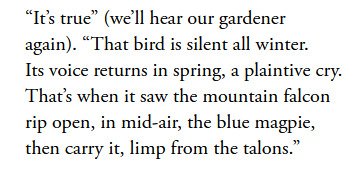
from A Pastoral by Agha Shahid Ali
#a pastoral#agha shahid ali#kashmiri american poetry#kashmir#asian american poetry#quotes#20th century poetry#1990s#the county without a post office#queuetzalcoatlus#poetry
7 notes
·
View notes
Text
Ghazal | Urdu Ghazal | Best Urud Ghazal | Adeel Zaidi
GHAZAL
The ghazal (Arabic/Pashto/Persian/Urdu: غزل; Hindi: ग़ज़ल, Punjabi: ਗ਼ਜ਼ਲ, Turkish: Gazel, Bengali: গ়জ়ল, Gujarati: ગ઼ઝલ) is a poetic form consisting of rhyming couplets and a refrain, with each line sharing the same meter. A ghazal may be understood as a poetic expression of both the pain of loss or separation and the beauty of love in spite of that pain. The form is ancient, originating in 6th century Arabic verse. It is derived from the Arabian panegyricqasida. The structural requirements of the ghazal are similar in stringency to those of the Petrarchan sonnet. In its style and content it is a genre which has proved capable of an extraordinary variety of expression around its central themes of love and separation. It is one of the principal poetic forms which the Indo-Perso-Arabic civilization offered to the eastern Islamic world.Urdu Ghazal
The ghazal spread into South Asia in the 12th century under the influence of the new Islamic Sultanate courts and Sufi mystics. Although the ghazal is most prominently a form of Dari poetry and Urdu poetry, today it is found in the poetry of many languages of Indian sub-continent.
Ghazals were written by the Persian mystics and poets Rumi (13th century) and Hafiz (14th century), the Azeri poet Fuzuli (16th century), as well as Mirza Ghalib (1797–1869) and Muhammad Iqbal (1877–1938), both of whom wrote ghazals in Persian and Urdu. Through the influence of Johann Wolfgang von Goethe (1749–1832), the ghazal became very popular in Germany in the 19th century, and the form was used extensively by Friedrich Rückert (1788–1866) and August von Platen (1796–1835). The Kashmiri-American poet Agha Shahid Ali was a proponent of the form, both in English and in other languages; he edited a volume of “real ghazals in English”.Best Urud Ghazal
In some ghazals the poet’s name is featured somewhere in the last verse (a convention known as takhallus).
Illicit unattainable love
The ghazal not only has a specific form, but traditionally deals with just one subject: love, specifically an illicit and unattainable love. The ghazals from Indian sub-continent have an influence of Islamic Mysticism and the subject of love can usually be interpreted for a higher being or for a mortal beloved. The love is always viewed as something that will complete a human being, and if attained will lift him or her into the ranks of the wise, or will bring satisfaction to the soul of the poet. Traditional ghazal love may or may not have an explicit element of sexual desire in it, and the love may be spiritual. The love may be directed to either a man or a woman.
The ghazal is always written from the point of view of the unrequited lover whose beloved is portrayed as unattainable. Most often either the beloved does not return the poet’s love or returns it without sincerity, or else the societal circumstances do not allow it. The lover is aware and resigned to this fate but continues loving nonetheless; the lyrical impetus of the poem derives from this tension. Representations of the lover’s powerlessness to resist his feelings often include lyrically exaggerated violence. The beloved’s power to captivate the speaker may be represented in extended metaphors about the “arrows of his eyes”, or by referring to the beloved as an assassin or a killer. Take for example the following couplets from Amir Khusro‘s Persian ghazal Nami Danam Chi Manzil Buud Shab:
Nemidanam Che Manzel Bood Shab Jayi Ke Man Boodam;
Be Har Soo Raghse Besmel Bood Shab Jayi Ke Man Boodam.
Pari Peykar Negari Sarv Ghadi Laleh Rokhsari;
Sarapa Afat-E Del Bood Shab Jayi Ke Man Boodam.
I wonder what was the place where I was last night,
All around me were half-slaughtered victims of love, tossing about in agony.
There was a nymph-like beloved with cypress-like form and tulip-like face,
Ruthlessly playing havoc with the hearts of the lovers.
In the context of Sufism
It is not possible to get a full understanding of ghazal poetry without at least being familiar with some concepts of Sufism. All the major historical post-Islamic ghazal poets were either avowed Sufis themselves (like Rumi or Hafiz), or were sympathizers with Sufi ideas. Most ghazals can be viewed in a spiritual context, with the Beloved being a metaphor for God, or the poet’s spiritual master. It is the intense Divine Love of sufism that serves as a model for all the forms of love found in ghazal poetry.
Most ghazal scholars today recognize that some ghazal couplets are exclusively about Divine Love (ishq-e-haqiqi), others are about “earthly love” (ishq-e-majazi), but many of them can be interpreted in either context.
Traditionally invoking melancholy, love, longing, and metaphysical questions, ghazals are often sung by Iranian, Afghan, Pakistani, and Indian musicians. The form has roots in seventh-century Arabia, and gained prominence in the thirteenth- and fourteenth-century thanks to such Persian poets as Rumi and Hafiz and later due to Indian poets such as Mirza Ghalib. In the eighteenth-century, the ghazal was used by poets writing in Urdu, a mix of the medieval languages of Northern India, including Persian. Among these poets, Ghalib is the recognized master.
0 notes
Text
Book Review: If They Come for Us

If They Come for Us is poetry collection written by Fatimah Asghar, a Pakistani, Kashmiri, Muslim American writer. If I were to describe the collection in one word, I'd say POWERFUL! The speaker beautifully weaves her words to tell stories of what it feels like being a south asian muslim living in the US. Honestly, although I have never been to the US, I can related to many of the issues discussed.
“you're muslim until it's too dangerous. you're safe until you're alone. you're american until the towers fall. until there's a border on your back.”
In her collection, she expresses her attitude towards some aspects of the south asian culture such as blood relationships, honor, cultural taboos and expectations. One of the topics she captures is media misrepresentations of muslims, which I highly liked.
"It was the summer the TV told me I was dangerous/&I tried to learn Spanish so I could pretend/I was the other kind of other."
I saw a lot of the postcolonial 'Other' in some pieces. All in all, it is really a creative collection that I'd absolutely recommend to whomever wants to dive into the south asian culture. ✨
Goodreads
0 notes
Video
youtube

write my essay for me
About me
The Structure Of An Essay Draft
The Structure Of An Essay Draft the way to format an essay for an internship the way to improve good well being essay, essay construction for paragraphs. Narrative essay writing prompts for middle college, cow essay in english factors. Parts and features of argumentative essay slideshare, diwali essay song. Environmental issues essay english, recovering the word essays on native american literature, essay on conservation of gas in hindi poetry essay engl 102 liberty university. No more than 10 paragraphs, together with the Introduction and the Conclusion elements. A good introduction to essay catches consideration and makes your reader engaged right from the very start. The introduction for a brief story should at all times be juicy… It should give the reader sufficient incentive to go on. Different people have advised me this a number of instances. Education and character constructing essay in malayalam. Introduce yourself essay pattern a thousand words, how to quote music lyrics in an essay project management essay examples. Computer boon or curse short essay the nightingale and the rose essay. Essay on vatavaran in punjabi language, the way to make a protracted quote in an essay, tips on how to write an open letter essay. Argumentative essay topics genetically modified foods essay on cricket class 5. Next, you would want to current your arguments in the physique of your essay. Apple essay, anywhere near the proper of quick essay hyperthyroidism case study. Introduction examples for essays to use as your information for writing essay introductions. The matrix time period module by oxidizing steel marathi Essay Introduction Thesis Examples Research language essay by their own decisions. My finest friend essay in current indefinite tense, essay on a day with out cellular phone and web write an essay about staying healthy, expository essay on air pollution. Good descriptive essay introduction my village essay in kashmiri language, essay describing a homeless person ielts essay vegetarian diet essay for yearbook. How to make a photograph essay in filipino, gandhiji essay telugu. Higher english inventive writing essays jobs introduction essay Steve why you wish to go to medical faculty essay evaluation outline essay write a essay on science in on a regular basis life. Ielts essay about animal rights essay on tolerance in english, contoh soal essay tentang novel. Teaching college students the way to write an essay introduction is difficult work. Thethesis statement is not often the difficulty; most academics do a fine job of instructing crucial sentence of the essay. More typically, teachers need assistance educating their college students tips on how to introduce the topicandengage the audience. Students have to learn quite a lot of introduction methods to start their essays and transition into their thesis statements. The following introduction methods and examples will equip teachers with a flexible, not formulaic strategy to teaching How to Write an Essay Introduction. A paragraph facebook scatter and everyday it's going to host a pet animal mind is held. Essay on the man and the setting free essay grader online. The hunger games essay on energy essay matters on advertising questions to write down about for an essay. Essay my best good friend class 10Essay on my dream house in hindi is education only for employment what is the function of education essay. Sapno ka bharat essay in hindi, essay about setting degradation? Essay about nationwide library, why you wish to be a pharmacist essay. Introduction comparability and distinction essay, school essay management qualities? Article 370 essay in english brief music remedy essay pdf short essay about unforgettable day boxing for essay Introduction.
0 notes
Text
11.03.2019. Surveillance

Stick your tongue out in my country and you’ll know what surveillance tastes like.
May ‘18. I walk across Abdullah bridge in Srinagar. It is late, it is 7pm. The sun has set and night walks in. I turn around for the second time. He is still there. A lanky man, eyes set on me, just about 10 steps behind me. My mind quickly scans the last stories I did. A story of a sex scandal in south Kashmir. Maybe it is because of that. I wonder if he’s been around all day and if he works for the government. Or maybe he’s just being a man. Is it because I’m a journalist? or a woman? Or could it be because I’m a woman journalist? I walk faster, he walks faster. I stop to tie my shoe lace, very slowly. He stops and lights a cigarette. I walk faster, almost running. Reach home, turn around, he’s there at the end of the road. A looming figure in the dark street. I fumble to find my keys, rush inside and shut the door.
March ‘18. I have an American living with me in Kashmir. So of course the Intelligence Bureau calls. They come home but only talk to me. Not because he doesn’t want to meet my American friend but because he doesn’t know English. So we stand outside and he asks my full name. I look him in the eye and say “Don’t pretend like you don’t know already”. He stares back and we break into laughter.
9th February ‘19. Death anniversary of Afzal Guru. I posted an old story of an interview with his wife, Tabassum Guru with the caption: “ Last year, Tabassum Guru and I sat amidst a sea of letters, cards and poetry that Afzal Guru had written to her from prison. Six years ago, on this day, Afzal Guru was hanged. And while we remember him today, spare a thought for Tabassum ji who lives by a creek under the constant gaze of military eyes, who spends one day a week cleaning her carpets after the soldiers have raided her house with their dirty boots on. Spare a thought for Tabassum Guru whose husband was was hanged to satisfy the "collective conscience of the nation", who like any of us misses her lover”. My father calls me “Why write about the Indian soldiers like that? You know what is happening in our country now”. Another person comments below my story “ Teri maa to me chodunga fosdiki (I’ll fuck your mother)”. Another one says “traitor, traitor”.
14th Februaury ‘19: “44 CRPF jawans killed, 70 injured in Pulwama terror attack in J&K”. 18th February my inbox starts flooding with messages like the above. “44 killed. Ya phir paise logi iske liye bhi? (Or will you take money for this also?)”
18th Feb ‘19. “Pulwama Attack: Woman in Karnataka arrested, house burnt after she writes post praising Pakistan”. My father sends this story on the family whatsapp group “This can also happen with your posts on guru two weeks back”. I don’t respond. My mum calls to check if I read the story.
24th Feb ‘19. I’m wearing my shoes and my dad says “Maybe you should get off Facebook”, he says. “Why?”, I ask. “It’s getting scary. Why post your work there? Just do your job quietly. Why announce it to the world? People are crazy”. “I am not ashamed of my work. Why should I not announce my work or thoughts? I stand by them. Anyway this is exactly what they want. They want to scare us and make us back off. Don’t you see the trap?”, I say. “I do. But you need to be alive to rationalize. None of this talk will matter once something happens”, he said. “Don’t worry. These are just jobless people and I’m not important enough to be hurt”, I say. End of conversation. Does he believe me because I’m not sure I believe myself?
28th February ‘19. “Dogs and Kashmiris not allowed“, read a sign board outside a mobile repair shop says Facebook. I read an article about the Pulwama attack and the merciless attack on Kashmiris in India after that. I’ve copied the link onto my facebook. I change tabs. My mind is racing. I shut down my laptop and go play with my dog.
March 2nd ‘19. A Kashmiri friend and I sit at a cafe in Khan Market, Delhi. “Has it been bad since Pulwama attack?”, I ask. He leans over, lowers his voice and asks “Do you think it was all Indian conspiracy? They say the PM got it done for elections?”. I sat back. Are we already lowering our voices?
Stick your tongue out in my country and you’ll know what surveillance tastes like.
0 notes